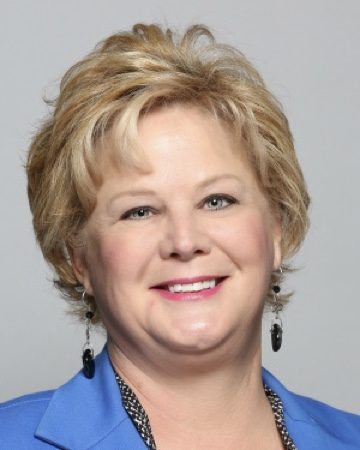
October Is Long-Term Care Planning Month – Part Three
Welcome to third installment in our three-part series on Long-Term Care Service and Support. Our first installment outlined the government-sponsored programs. In the second part, we addressed the new variations of private pay options for you to consider. The third blog post is a road map to care. I am pleased to feature one of our favorite companies in this space. In fact, Credit for Caring offers their members special discounts as an affiliated partner.
Meet Our Guest Blogger – Tierney Beauregard
Home Care Genie (HCG) Secure is the kind of LTSS innovation we need today. Tierney leads marketing and communications in this dynamic team. HCG Secure is a product development firm focused on preparing individuals for extended care services and supports, as well as final expenses and funeral costs. Each of HCG’s products include both valuable financial benefits as well as non-insurance assistance, such as planning and advocacy, designed to support individuals and their families – in advance of their time of need – so they have increased peace of mind. HCG Secure continues to innovate with the goal of enabling individuals to age with confidence!
A Guide to Understanding Extended Care Services and Supports
As we or loved one’s age or face health challenges, there comes a time when additional care and support may be required to maintain quality of life. This October, “Long-Term Care Awareness” month, we want to offer you the resources and information to plan for your future care needs. Extended care services are designed to help individuals live as comfortably and independently as possible, whether they are dealing with chronic illnesses, disabilities, or simply the effects of aging. Here, we will explore the various types of extended care services and supports available, how they differ, and the situations in which they might be most appropriate.
In-Home Care
In-home care services are tailored for those who wish to remain in the comfort of their own home while receiving care. These services are often provided by professional caregivers, nurses, or therapists. Depending on the level of care required, these responsibilities are also sometimes taken on by loved ones or informal caregivers.
– Personal Care Services: These include assistance with activities of daily living (ADLs), such as bathing, dressing, eating, and toileting. Personal care aides may also help with light housekeeping, meal preparation, and medication reminders.
– Skilled Nursing Care: For individuals with more complex medical needs, in-home skilled nursing care is available. This involves services provided by licensed nurses, including wound care, administration of IV medications, and monitoring of vital signs.
– Physical, Occupational, and Speech Therapy: Therapists can visit the home to provide rehabilitation services, helping individuals regain or maintain mobility, strength, and communication skills.
In-home care is ideal for those who want to maintain a sense of independence while receiving personalized support.
Assisted Living
Assisted living facilities are designed for individuals who need help with daily tasks, but do not require round-the-clock medical care. Residents live in private apartments or rooms and have access to communal dining and activities.
– Social Support: Assisted living communities foster a social environment, offering residents opportunities to engage in recreational activities, events, and outings.
– 24/7 Assistance: Staff members are available at all times to provide help with ADLs, medication management, and general supervision.
– Transportation Services: Assisted living often includes transportation for medical appointments, shopping, and social activities.
This option suits individuals who value a degree of independence but benefit from having access to support and a built-in social community.
Nursing Homes
Nursing homes, also known as skilled nursing facilities, provide the highest level of medical care outside of a hospital setting. These facilities are designed for individuals with significant medical needs – requiring 24-hour supervision.
– Comprehensive Medical Care: Nursing homes have licensed nurses and doctors on staff who can provide care for individuals with chronic illnesses, severe injuries, or disabilities.
– Rehabilitative Services: Many nursing homes offer rehabilitation services, such as physical therapy, to help residents recover from surgeries, strokes, or other serious health events.
– Memory Care: Specialized care for individuals with Alzheimer’s disease or other forms of dementia is often provided in nursing homes, with staff trained in managing cognitive impairments.
Nursing homes are typically suited for individuals who need more constant medical monitoring, as well as support with daily activities.
Adult Day Care
Adult day care centers offer daytime care for older adults who need supervision or assistance during the day but live with family members or other caregivers.
– Social and Recreational Activities: These centers provide a variety of activities, including games, exercise classes, arts and crafts, and outings.
– Health Monitoring: Some adult day care centers also offer health services, such as medication administration and physical therapy.
– Respite for Caregivers: Adult day care can give family caregivers a break from their responsibilities, allowing them to attend to work or personal needs.
This service is ideal for families who want to ensure their loved ones are well-cared for during the day without committing to full-time residential care.
Hospice and Palliative Care
Hospice and palliative care are specialized services designed for individuals with serious or terminal illnesses. The focus is on comfort and quality of life; rather than curative treatments.
– Pain Management: Hospice care emphasizes pain relief and symptom management for individuals nearing the end of life, with the goal of making patients as comfortable as possible.
– Emotional and Spiritual Support: Both patients and their families receive counseling and emotional support, addressing the mental and spiritual aspects of terminal illness.
– Care Coordination: Hospice teams often include doctors, nurses, social workers, and chaplains who work together to provide holistic care tailored to the individual’s needs.
Hospice care is typically provided near end-of-life – at home, in a hospice facility, or in a hospital, depending on the patient’s preferences and condition.
Choosing the right type of extended care service depends on the individual’s health condition, level of independence, and personal preferences. In-home care offers flexibility and independence, while nursing homes provide round-the-clock medical care. Assisted living and adult day care strike a balance between support and independence, while hospice and palliative care focus on comfort at the end of life.
Choose Wisely
These services can be expensive, ranging from $20,000 annually for adult day care services, to over $100,000 for nursing home care. HCG Secure has a number of products designed to support policyholders in planning for and receiving the care of their choice, including GTL Life Select, Home Care Secure and HCG Legacy. Make sure to review coverage options and affordability, as you’re making a long-term care plan, and check out HCG Secure blog posts for more information on considerations as you’re purchasing a policy.
By understanding the different options available, families can make informed decisions to ensure their loved ones receive the best possible care for their unique circumstances.
Thank You, Tierney
I encourage you to bookmark the HCG Secure site. Our needs and resources change throughout our aging and care journey. We believe that HCG Secure will continue to innovate offering options that are affordable and responsive to market demands.



